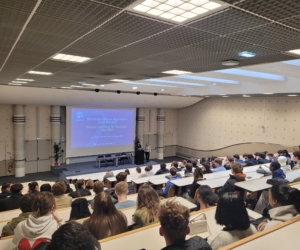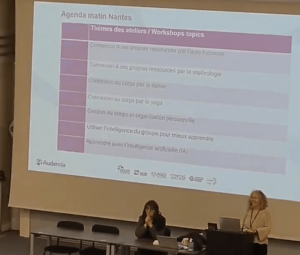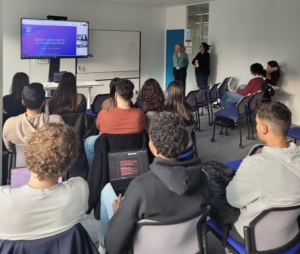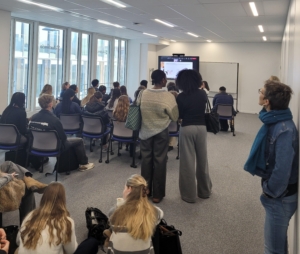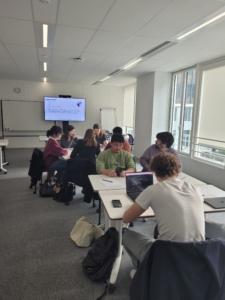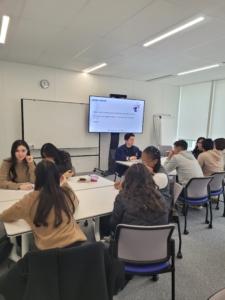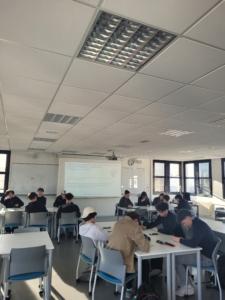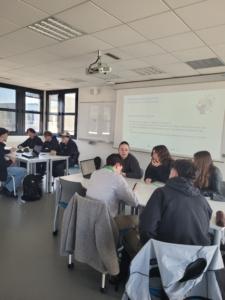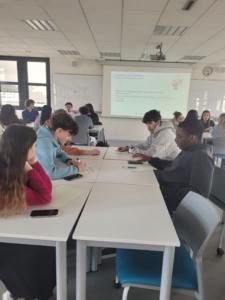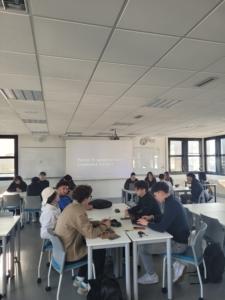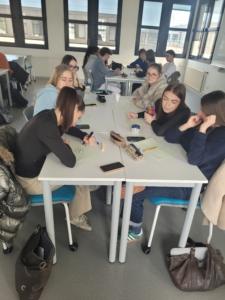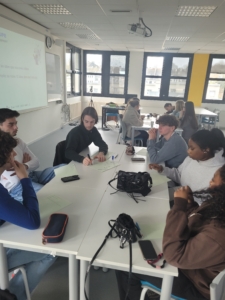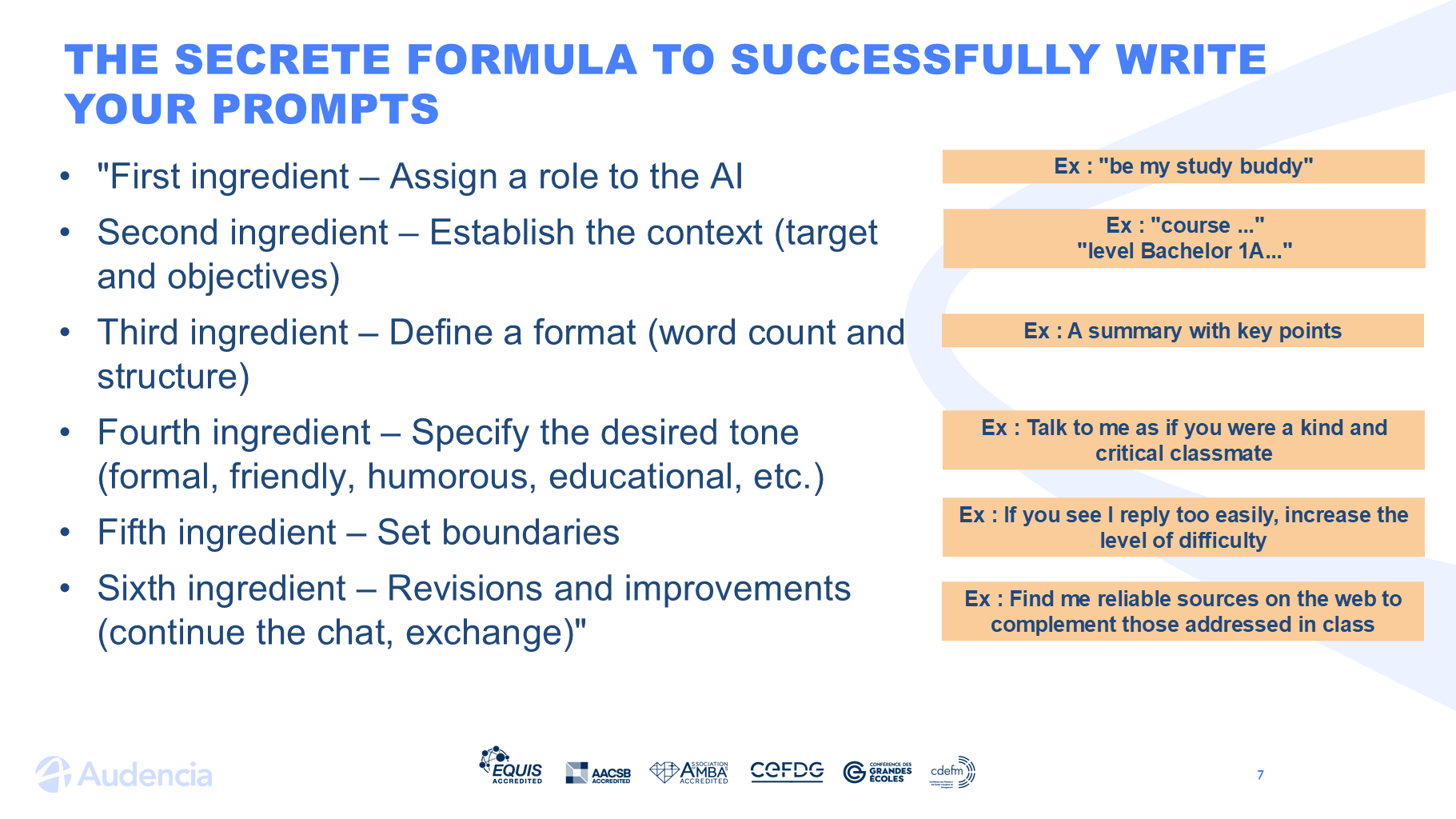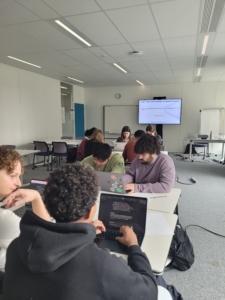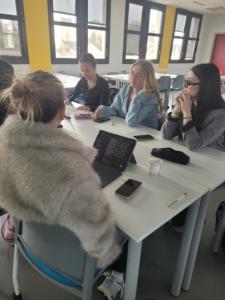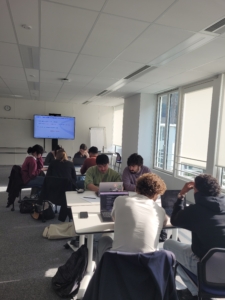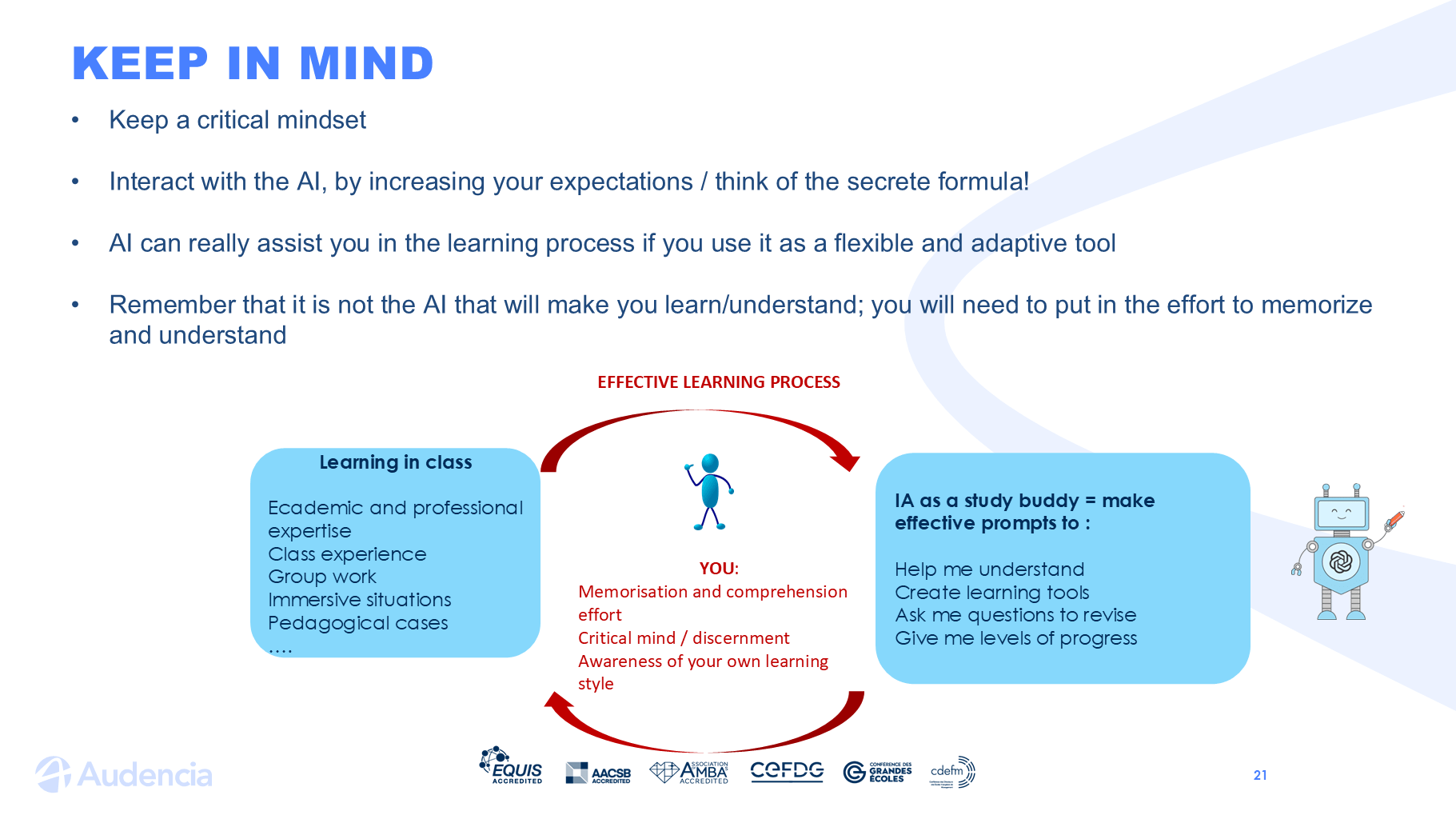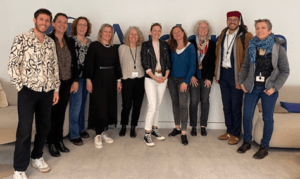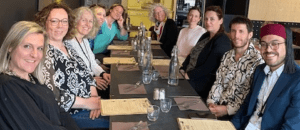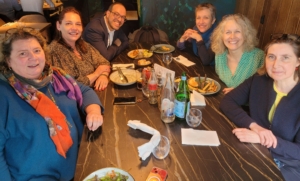- Home
- >
- FACILITATING AND EVALUATING STUDENTS
- >
- Inspiring events
- >
- Workshop: learning with Generative AI - 2nd edition
This new workshop was co-designed by Céline LEGRAND and Dan EVANS with the contribution of pedagogical engineers Firas ABDELMALEK and Erika LOGEAIS in the framework of the seminar Well being and learning held in Audencia for the return of Bachelor 1A, after their expatriation. It involved nearly 270 French and English students (8 workshops in Nantes, 4 in Paris)
We have reworked for this edition the format of 2024 to adapt to the very rapid changes in student practices observed since last year.
Now widely used
It is a fact that a majority of students now admit to using AI this year, and this since high school. The uses are as diverse as they are varied and can be as much about the context of their studies as their personal lives. We also found that this use is done in a raw way, without any step back or distance. Their use is without filter or discernment. One of the key messages to remember: “Being a student today is about learning how to think in an information-saturated world, how to retain some form of inner freedom and become a lucid citizen.”
A workshop in three phases
-
The majority of students already use AI... but without always understanding its limitations or biases.
-
Through scenarios, debates and “prompting” exercises, they have learned to become actors in their learning, not mere consumers of answers.
We articulated it as follows:
-
Discovery & sharing on the uses of AI to revise,
-
Critical debate around absurd prompts ("Can a toucan manage a team of crocodiles?" – you will remember 😄),
-
Prompting exercise on an academic text, to learn how to transform AI into true study companion.
Discovery & sharing
The pretext was to think, in a fictional situation of preparation for an exam, how AI can help them prepare. They first had to think of ideas alone on paper, then group/share with peers. On average, 5 or 6 big ideas emerged (such as “making review sheets”, “creating QCMs”, “simplifying complex concepts seen in progress”...)
Then, the goal was to ask AI to provide ideas supplémentaires pour apprendre. Anecdote sur leur capacité réduite à se concentrer sur une consigne simple : très peu ont respecté la consigne, la majorité demandant à l’IA « donne-moi des idées pour réviser pour un examen » !
Critical debate around absurd prompts
Very soon the question of trust in AI emerged in the second part, based on a discussion / debate around one or two prompts that we had generated upstream and totally stupid like «can a toucan manage a team of crocodiles?». This voluntary emphasis on an absurd example pleased the students and was very important in terms of collective awareness. Yes, to be able to assess the accuracy of an AI response, it is essential to be an expert on the subject you are working with. The students thus understood that, being in a learning process on new subjects at AUDENCIA, it is not possible for them to have the necessary perspective and interpretation unless they exercise a critical eye. We then put forward reference elements to help them integrate this notion.
An in-depth example in the session: having sources, yes, but which ones? and are they reliable? how do we know for sure? how then to compare the sources with what the AI says? We have also mentioned the importance of Knowledge Hub dans cet apprentissage.
Inevitably, the issue of data confidentiality was addressed at that time. We were struck by their ignorance of the fact that sharing data was subject to a number of risks! Finally we recalled the school’s policy on this subject.
Prompting exercise
Finally the final part of the workshop was dedicated to an exercise to learn how to prompt to learn. We took over that logic with a type text of those we see classically in progress Bachelor (a text on conflict management by Thomas and Kielman). We first asked them to prompt the AI to learn this text for an exam with MCQ/ short questions. In a second time we have developed with them the interest of formulating meticulous and exact prompts and gradually transform the use of AI into study buddy.
They particularly liked the secret recipe for the prompts.
Conclusion
In conclusion, we reminded them of the importance of being an actor in their own learning, responsible and citizen, and put into perspective their brief stay at school with a view to a future long working life, where the work and conscious use of data is essential to the businesses where they will be working. We reminded them that they were at the centre of a virtuous system which they had no choice but to operate.
Our reflexive opinion on this workshop is that the AI used massively by young people in the process of brain development is like putting a bomb in the hands of a 5-year-old child. Indeed, the unenlightened use endangers the evolution of their brain in particular on the ability to acquire fundamental bases of what is expected from post-baccalaureate and master students :
- creation of fundamental critical thinking mechanisms,
- identification of cognitive biases,
- creation of complex and systemic thinking.
There is therefore a risk of potential impoverishment of their overall level of competence and we believe that this type of workshop has had the advantage of being a form of awareness-raising, which must be repeated and acted upon throughout the course of studies at school.
We therefore think that workshops related to the use of their emotional intelligence could have a real meaning to be developed in addition. This is already the purpose of the activities proposed in the seminar. But perhaps we could go even further?
In closing words: “remember the toucan”!



